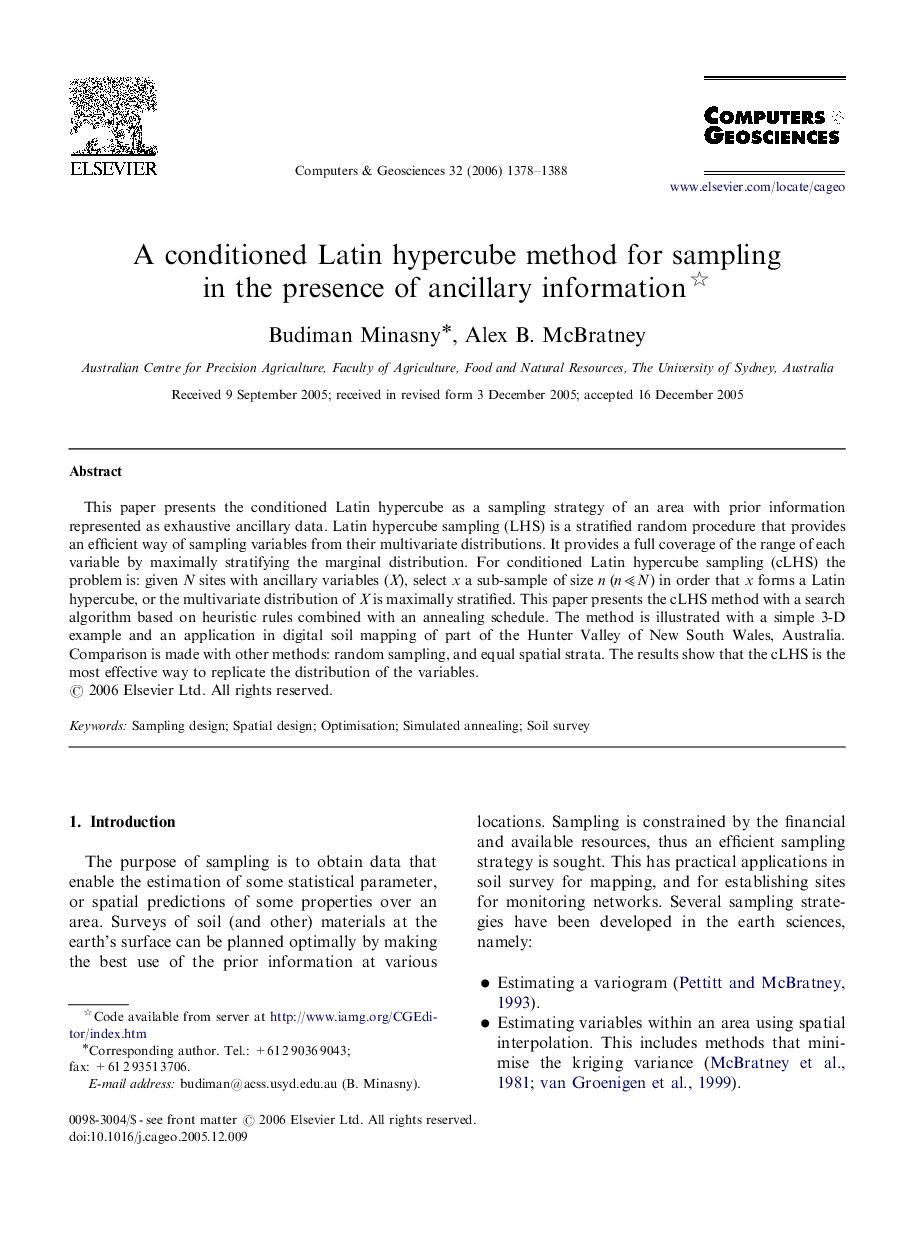| Article ID | Journal | Published Year | Pages | File Type |
|---|---|---|---|---|
| 508262 | Computers & Geosciences | 2006 | 11 Pages |
This paper presents the conditioned Latin hypercube as a sampling strategy of an area with prior information represented as exhaustive ancillary data. Latin hypercube sampling (LHS) is a stratified random procedure that provides an efficient way of sampling variables from their multivariate distributions. It provides a full coverage of the range of each variable by maximally stratifying the marginal distribution. For conditioned Latin hypercube sampling (cLHS) the problem is: given N sites with ancillary variables (X), select x a sub-sample of size n (n⪡N)(n⪡N) in order that x forms a Latin hypercube, or the multivariate distribution of X is maximally stratified. This paper presents the cLHS method with a search algorithm based on heuristic rules combined with an annealing schedule. The method is illustrated with a simple 3-D example and an application in digital soil mapping of part of the Hunter Valley of New South Wales, Australia. Comparison is made with other methods: random sampling, and equal spatial strata. The results show that the cLHS is the most effective way to replicate the distribution of the variables.
